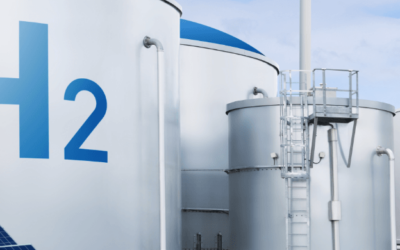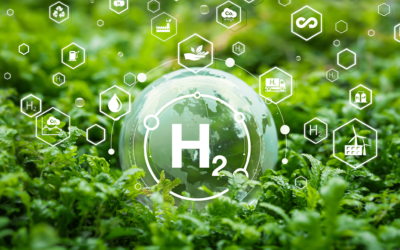TKI Nieuw Gas is looking for research proposals in the field of geothermal and underground energy storage. The best proposals have a chance of receiving grants of up to 500,000 euros per project. Interested parties can apply until 6 October 2020.
Geo-energy: geothermal energy and underground energy storage
Geothermal and underground energy storage are seen as promising options in the transition to a sustainable energy supply. Geothermal energy involves extracting geothermal heat from deeper layers of the earth. Underground energy storage involves the temporary storage of energy (such as hydrogen, gases, heat or compressed air) in, for example, empty gas fields, aquifers or cavities in the ground.
Call for subsidies for research into geo-energy
Geo-energy not only offers opportunities, but also many challenges, for example in the areas of safety, the environment and cost reduction. This requires a lot of research and innovations. To help achieve this, TKI Nieuw Gas of the Top Sector Energy publishes one or more grant calls every year in the field of geo-energy. In 2020, this will be a single call in which parties can submit research proposals for research projects aimed at using the deep subsurface for sustainable energy production (such as geothermal energy) and energy storage. This could involve research throughout the entire chain: from the ‘exploration’ of the subsurface’s potential, to its integration into the overall energy system.
What are the possible research themes?
Research proposals must in any case tie in with one or more of the following themes:
- – Geological characterisation (focusing in particular on new exploration techniques for good characterisation of the subsurface geology, and the associated uncertainties)
- Reservoir development (knowledge and techniques for extracting and storing underground energy, minimising production risks and costs, and extending the life of reservoirs)
- Drilling and well finishing (advanced technology for underground wells, with extra attention to cost reduction, longer life, reuse and production at depths deeper than 4 km)
- Productivity and operational aspects (such as dealing with production and transport problems caused by corrosion, scale and unexpected pressures, and new techniques for production monitoring)
- Energy system integration (techno-economic studies of energy systems consisting of multiple renewable energy sources, both underground and above-ground with, for example, wind or solar power)
- Decommissioning and abandoning (closure of old wells for gas and oil extraction, taking into account subsequent new applications, such as geothermal or energy or CO2 storage)
- Societal questions (especially focused on produced water, reduction of noise and vibrations, and reduction of greenhouse gases at extraction and storage sites).
Within these topics, the emphasis lies on smart solutions that promote the application of geothermal or non-fossil energy storage. This mainly concerns research into innovations that remove obstacles, as well as exploration/pre-studies, development, realisation and production. In addition, smart combinations of geothermal and/or underground energy storage with other activities that contribute to the energy transition (such as CO2 storage) are sought after.
Budget and level of subsidy
A budget of 2.5 million euros (from the PPP surcharge) is available for the grant call. The maximum grant per research project is 500,000 euros. The amount of the grant depends on the project costs. As an indication, the PPP bonus is usually a grant percentage of 25% for experimental research, 50% for industrial research, and 75 to 85% for fundamental research. However, derogations are possible.
About the application procedure
Only consortia can apply for a grant: a consortium must consist of at least one company and one recognised research organisation. The application procedure consists of two steps: until 6 October 2020 (5 p.m.), interested parties can submit a pre-registration via an ‘Expression of Interest’. If this is assessed as sufficient, the submitter can submit a complete project proposal (from 13 October to 24 November 2020, 5 p.m.).
To conclude, a few important tips and tricks:
- The project must have a Dutch scope, a maximum duration of four years, and must refer to a technology related to Technology Readiness Level (TRL)3 – TRL6.
- Furthermore, the project may not relate to shallow geothermal energy (up to 1500 metres), production of fossil energy (in particular natural gas and oil), or energy storage to a depth of 500 metres or less. There are no restrictions on the maximum permissible depth.


